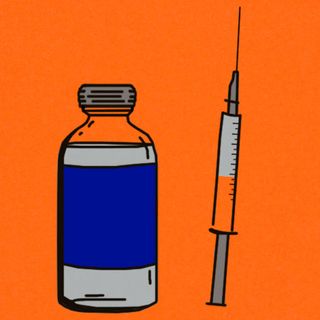A preclinical study of a potentially universal dengue vaccine has proven successful. A research team led by Dr. Anavaj Sakuntabhai of Institut Pasteur Paris, France, announced the promising development of a vaccine that can induce a positive immune response against the mosquito-borne dengue virus in people who have never had the infection. Existing dengue vaccines are only safe for those who had been previously infected with dengue, but these latest developments indicate a vaccine that could be universally beneficial.
In April, the World Health Organization cautioned people about dengue vaccinations, saying that the vaccine should only be administered to those who have had dengue before. As Science magazine reported, dengue becomes more dangerous when a person is infected a second or subsequent time.
By that logic, individuals who haven’t had dengue are immediately put at greater risk should they become infected after having had dengue antibodies inserted into their bodies via a vaccine. (Most vaccines involve inserting small quantities of the virus into the body, which is not harmful, except in exceptional cases such as this.)
The problem with dengue antigens is that once they enter your body a first time, your body’s immune system actually starts helping them enter your body a second time. This is called the antibody-dependent enhancement phenomenon. Indeed, as Science points out, studies have shown that people who are given the current dengue vaccine become vulnerable to a more severe, life-threatening reaction if they later become infected with dengue. (The current vaccine does not give full immunity to dengue). However, in people who had previously had dengue, the current vaccine is still able to protect them against a subsequent bout of dengue fever.
In November 2017, Sanofi Pasteur, the parent company of the non-profit Institut Pasteur, issued a statement saying people who had not previously had dengue should not take its Dengvaxia®, the first of the current vaccine to be licensed. When it was first released in 2016, Sanofi Pasteur was unaware of its adverse effects on those who have not previously been infected. Dengvaxia® was administered to 800,000 children in the Philippines as part of a universal dengue vaccination program, the first of its kind; by the time of Sanofi Pasteur’s announcement in 2017, up to 40 children became seriously ill, and 9 children had died as a result of the vaccine.
Dengvaxia® is now licensed in 20 countries, according to the WHO. The WHO now recommends a pre-screening strategy to determine if individuals have already had dengue before administering it to them.
Although it certainly will not undo the damage its parent company did in the Philippines, the new vaccine being developed by Institut Pasteur could potentially solve the problem with the current one. Dr. Sakuntabhai, the lead researcher, has reportedly created a vaccine that prevents antibody-dependent enhancement phenomenon. While the company has yet to confirm this, the new vaccine could therefore potentially be made available to everyone.
“With the challenge of protecting people against dengue virus, we certainly need a next generation dengue vaccine, which could protect people from the antibody-dependent enhancement phenomenon,” said Dr. Sakuntabhai.
While this certainly seems like good news, development is still in early stages and a universally beneficial vaccine may not become available anytime soon — but there may come a day when we can burst out of our mosquito nets, throw away our mosquito coils, and hail the end of the dengue virus yet.




